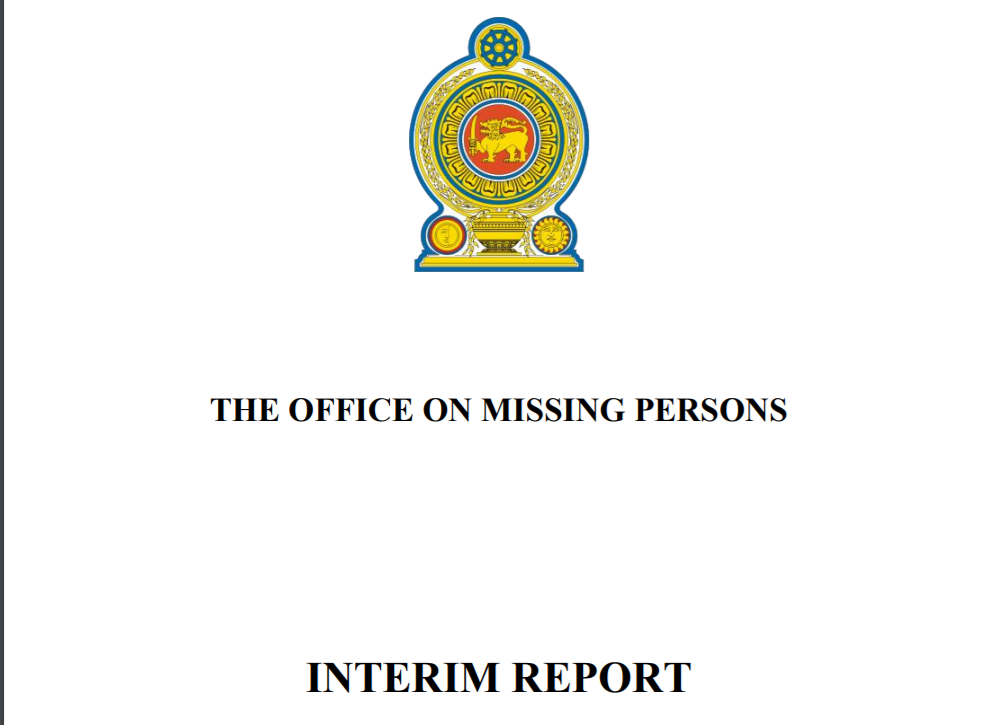Executive Summary:
The establishment of the Office on Missing Persons (OMP) marks a significant milestone in the efforts of the Government of Sri Lanka to address the issues of the missing and the disappeared. Established under the Office on Missing Persons (Establishment, Administration
and Discharge of Functions) Act No. 14 of 2016 as an independent commission, the OMP’s objectives are to trace and search for the missing, make recommendations towards nonrecurrence, ensure the protection of the rights of the missing, the disappeared and their
relatives, and to identify proper avenues of redress.
With the appointment of the OMP Commissioners in February 2018, the operationalisation of the Office commenced. The process of operationalisation includes designing and setting up units and regional offices, hiring staff, and developing policies, rules and procedures. The OMP also engaged in public consultations with the families of victims and held confidential meetings when requested by affected families. In order to secure expert knowledge required to perform specialised tasks, such as forensics, legal and archiving of data, the OMP
consulted with national and international organisations and experts, and also established key relationships with several government bodies and international organisations. Furthermore, the OMP is engaged in inquiries on specific cases, supporting the ongoing excavation and
exhumation of a mass grave in Mannar, consolidating existing records of missing persons and preparing recommendations and clarifications on legal issues affecting victims and families.
The challenges faced by the OMP are many and need to be balanced with the urgency of the needs of families of victims enduring years of physical and mental suffering. The failure of successive state institutions to provide families with truth, justice and reparations has created
a deep distrust of the State and by extension the OMP. The OMP recognises the multiple needs and positions of various families and the importance of securing their trust.
For the OMP to be effective, it requires the active cooperation of other arms of the State. The harms suffered as a result of the violation of the rights of the missing and disappeared need to be addressed through reparations. Therefore, the enactment of a bill for a credible and
effective Office for Reparations is vital. The OMP, however, recognises the urgency of the needs where families have become destitute due to the disappearance of a family’s sole or primary breadwinner. Hence the OMP identifies the provision of interim relief to families of
victims as a priority and is recommending a number of such measures. It is duly noted that interim relief in the form of welfare or other measures does not amount to reparations.
Victims retain their right to reparations even if they accept interim relief from the State. The OMP also recognises the critical need for justice to address the issue of the missing and disappeared. The OMP welcomes the enactment of the International Convention for the
Protection of All Persons from Enforced Disappearances Act No. 5 of 2018 (The Enforced Disappearances Act) as it criminalises enforced disappearances and reinforces the State’s obligation set out in the Constitution and according to national laws. However, incorporation
of the crime of enforced disappearances into domestic law remains inadequate. The OMP, whilst noting multiple areas for reform with regard to justice, makes recommendations to address urgent issues where there is credible evidence of violations and specific hurdles in pursuit of justice, including incidents of intimidation and harassment of families, activists and lawyers working on human rights issues.
Read the full report as a PDF: OMP interim report Sep 2018
